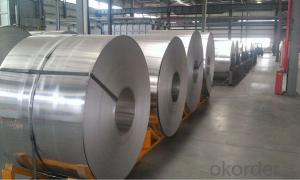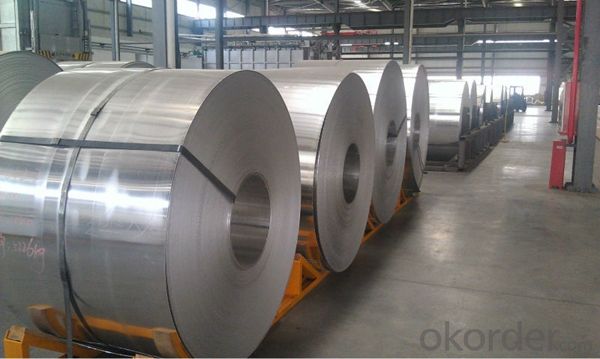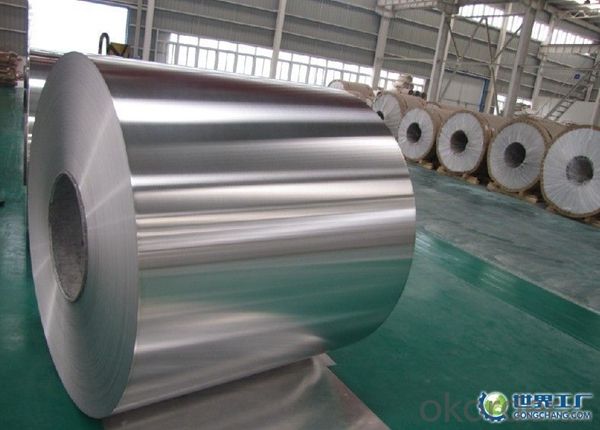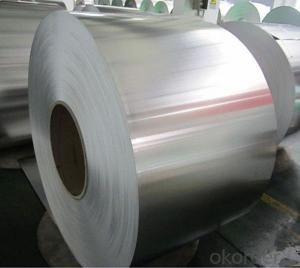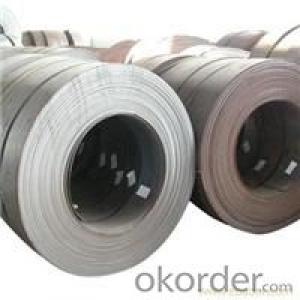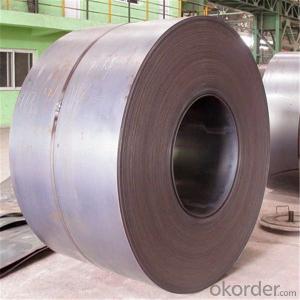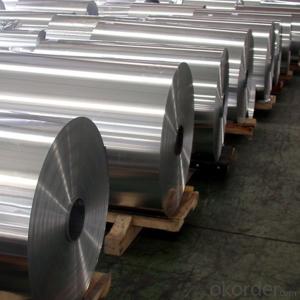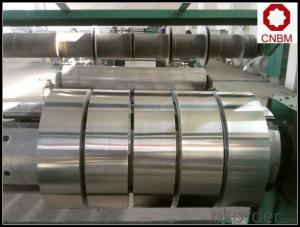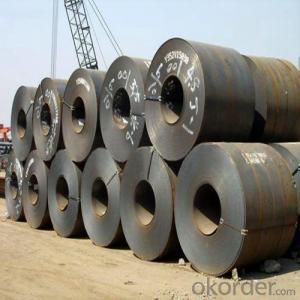Automotive Grade Hot Rolled Aluminum Coil 5005H14 - Aluminum Coil Prices
- Loading Port:
- Shanghai
- Payment Terms:
- TT OR LC
- Min Order Qty:
- 5 m.t.
- Supply Capability:
- 10000 m.t./month
OKorder Service Pledge
OKorder Financial Service
You Might Also Like
Specification
1. Specification of Hot Rolled Aluminium Coil 5005H14 for Automotive
Name | Aluminum Coil |
Brand | CNBM |
Alloy | 1100H-18, 3003-H24,3003-H26,3005-H26,8011,3004,3105,5005,etc. |
Thickness | 0.1~1.5mm |
Width | <2000mm< span=""> |
MOQ | 1 MT |
Coating finish | Brushed, drawing, embossed, printing |
Color | As to code RAL |
Surface | Embossed,Mill Finish,Coated,Brushed |
Gloss | 10-90%(EN ISO-2813:1994) |
Total coating thick | PVDF27 ~35micron |
Polyester18~27micron(EN ISO-2360:1995) | |
Coating hardness | 2H |
Adhesion | 5B (EN ISO-2409:1994) |
Impact resistance | No cracking and peeling (A.S.T.M D2794-1993) |
Flexibility (T-bend) | 0T- 2T |
MEK resistance | 100 |
Certification | ISO9001:2000, CE, SGS |
Coil's standard diameter | 1100mm |
Inner Diameter | 405mm/505mm |
Coil's standard weight | 1MT - 2MT |
2. Application of Hot Rolled Aluminium Coil 5005H14 for Automotive
(1).Interior: wall cladding, ceilings, bathrooms, kitchens and balconies, shutters, doors...
(2).Exterior: wall cladding, facades, roofing, canopies, tunnels,column covers , renovations...
(3).Advertisement: display platforms, signboards, fascia, shop fronts...
3. Feature of Hot Rolled Aluminium Coil 5005H14 for Automotive
*Such coil is specially designed to replace aluminum ingot, due to the high export tax of aluminum ingot, the coil has better price than ingot.
*This type of coil can fit customer's remelting furnace just like ingot, no need to make any change to the production line that was previously used for ingot. The standard coil size and weight is very suitable for the feed gate of furnace.
*This type of coil causes less material wastage than ingot when remelted.
*Our coil is made directly from ore, no need to go though the ingot making process, quality is much better than other suppliers who use ingot scrap to make coil.
Be free from Oil Stain, Dent, Inclusion, Scratches, Stain, Oxide Dicoloration, Breaks, Corrosion, Roll Marks, Dirt Streaks and other defect which will interfere with use
4. Certificate:
SGS and ROHS(if client request, paid by client), MTC(plant provided), Certificate of Origin(FORM A, FORM E, CO), Bureau Veritas and SGS (if client request, paid by client), CIQS certificate
5. Image of Hot Rolled Aluminium Coil 5005H14 for Automotive
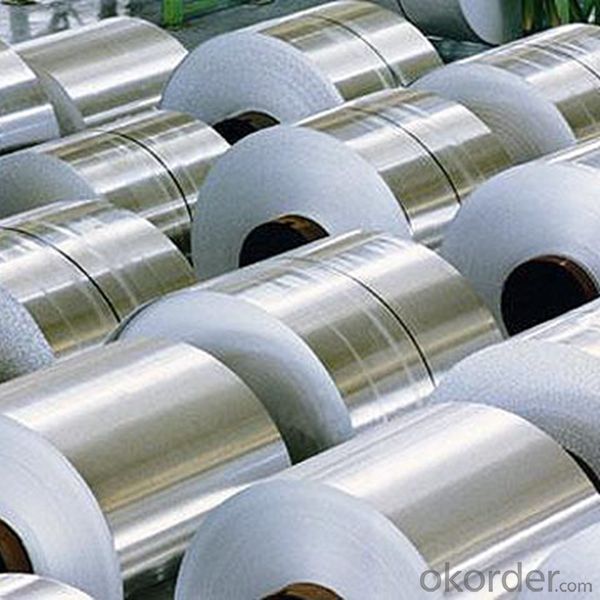
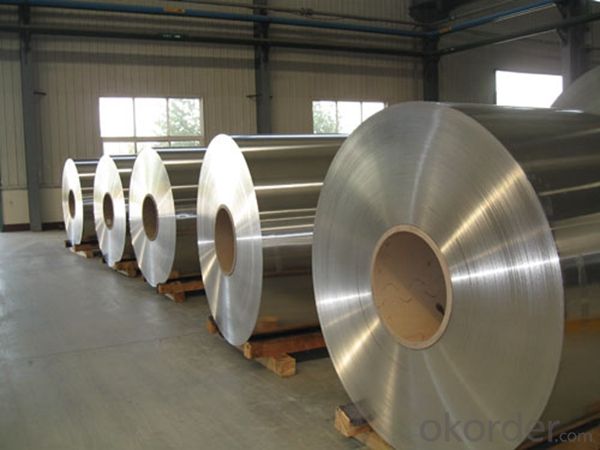
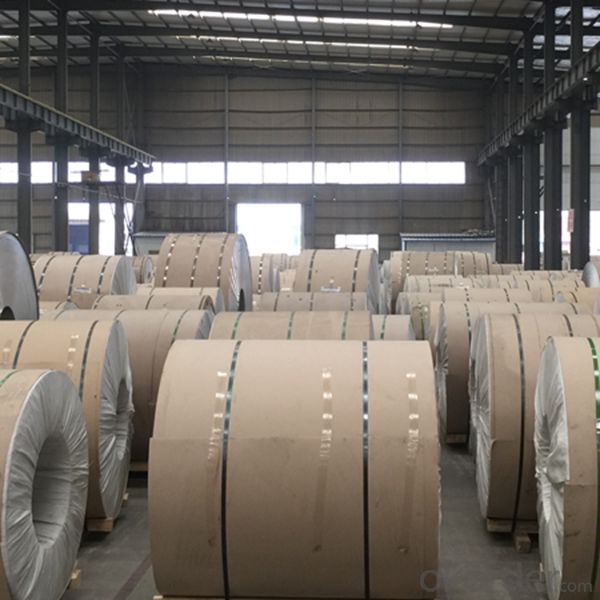
6. Package and shipping of Hot Rolled Aluminium Coil 5005H14 for Automotive
eye to wall
eye to the wall
with wood pallet (wooded case also available)
7. FAQ
1) What is the delivery time?
Dpends on actual order, around 20 to 35 days
2)What is the QC system:
We have QC staff of 20 persons and advanced equipment, each production is with MTC traced from Aluminum ingot lot.
3) What market do you mainly sell to?
Australia, America, Asia, Middle East, Western Europe, Africa etc
- Q: What are the potential applications of coil-perforated aluminum coils?
- Coil-perforated aluminum coils have a wide range of potential applications due to their unique properties. They can be used in architectural and construction projects for decorative facades, sunscreens, and acoustic panels. Additionally, they find use in automotive manufacturing for radiator grilles and soundproofing components. The coils are also suitable for air filtration systems, HVAC equipment, and industrial machinery, thanks to their excellent airflow and heat dissipation capabilities. Overall, the potential applications of coil-perforated aluminum coils are extensive, offering versatility and functionality in various industries.
- Q: What should pay attention to transporting aluminum coil?
- You must ensure the good property of the aluminum coil.
- Q: This question asks for a comparison of the benefits and drawbacks of utilizing spring steel wire coils.
- <p>Spring steel wire coils offer several advantages such as high strength and durability, making them ideal for applications requiring resilience and resistance to deformation. They are also known for their excellent elasticity, which allows for consistent performance in dynamic applications. Additionally, spring steel wire coils can be easily formed into various shapes, providing versatility in design and functionality. However, they also have disadvantages, including potential for corrosion if not properly treated, and they can be more expensive than other types of wire due to the material's properties. Furthermore, spring steel wire coils may require specialized tools and equipment for handling and installation, adding to the cost and complexity of their use.</p>
- Q: How many atoms are there in a piece of aluminum foil, 7.3 inches in length and 12.0 inches in width, and 0.141 mm thick? According to this problem, aluminum foil is a flat-rolled product, rectangular in cross section, of thickness from 0.006(0.15mm) to 0.00025(0.006mm). The density of Al is 2.699 g/cm3.
- What you want to do is determine the mass of the piece of aluminum foil and then convert that to number of atoms. I'll give some pointers and you can fill in the rest: 1. Calculate the mass of the foil: a. Convert the length and width of the foil into centimeters. b. Convert the thickness of the foil into centimeters. Use your 0.141 mm figure. c. Now multiply the length times width times the height to give you the volume in centimeters. d. Now multiply this volume calculated in step c times the density of aluminum. That will give you the mass of your piece of foil. 2. Convert this mass into number of atoms. a. From the periodic table you know that there are 26.982 grams per mole of Al b. There are 6.02 x 10^23 atoms in a mole. c. So, take the mass calculated in Part 1 and divide it by 26.982 grams per mole of Al. That will give you the number of moles of Al in your piece of foil. d. Now take this number of moles and multiply it by 6.02 x 10^23 atoms in a mole, and that will give you the number of atoms in your piece of foil.
- Q: What are the different surface treatments for aluminum coils?
- Aluminum coils can undergo various surface treatments, each offering distinct properties and benefits. The options for treating aluminum coils include: 1. Mill Finish: This is the natural, untreated surface of aluminum coils straight from the mill. It has a slightly rough texture and is commonly used when appearance is not a primary concern. 2. Anodized Finish: Anodizing, an electrochemical process, forms a protective layer on the surface of the aluminum coil. This treatment enhances corrosion resistance, durability, and offers a wide range of color choices. 3. Painted Finish: Aluminum coils can be coated with different paint systems to improve appearance and prevent corrosion. Painted finishes provide a vast selection of colors, gloss levels, and textures, allowing for customization based on specific design needs. 4. Polished Finish: Polishing, a mechanical process, creates a smooth and reflective surface on the aluminum coil. This treatment is often used for decorative purposes, providing a high-quality and visually pleasing finish. 5. Brushed Finish: Brushing involves mechanically brushing the surface of the aluminum coil in parallel lines, creating a distinctive texture. This treatment is commonly utilized in architectural and interior design applications. 6. Embossed Finish: Embossing is the process of creating raised or recessed patterns on the surface of the aluminum coil. This treatment adds texture, enhances strength, and can be used for decorative purposes or to improve grip in certain applications. 7. Laminated Finish: Lamination involves applying a layer of protective film or coating to the surface of the aluminum coil. This treatment adds extra protection against scratches, abrasion, and UV rays, making it suitable for outdoor use. Each surface treatment option offers its own advantages and is selected based on specific application requirements, such as corrosion resistance, durability, aesthetics, and functionality.
- Q: Is it possible to determine the spring constant of an aluminum coil using a spring compressor?
- <p>Yes, you can use a spring compressor to measure the spring constant of an aluminum coil. The spring constant (k) can be calculated using Hooke's Law, which states that the force exerted by a spring is proportional to its displacement (F = kx). By applying a known force to the spring and measuring the resulting displacement, you can calculate the spring constant. A spring compressor can apply a controlled force, and a displacement gauge can measure the compression, allowing you to determine the spring constant accurately.</p>
- Q: What is the typical thermal conductivity of aluminum coils?
- Aluminum coils typically exhibit a thermal conductivity ranging from 205 to 220 W/mK. Renowned for its exceptional thermal conductivity, aluminum stands as a favored option for heat transfer purposes, notably within HVAC systems, refrigeration units, and heat exchangers. The remarkable thermal conductivity of aluminum facilitates effective dissipation and transfer of heat, thereby guaranteeing peak performance and energy efficiency in said systems.
- Q: Are aluminum coils suitable for food processing and packaging?
- Aluminum coils are indeed suitable for food processing and packaging, as aluminum is a highly versatile metal that offers numerous benefits to the food industry. Firstly, it possesses exceptional thermal conductivity, enabling efficient heat transfer during food processing and cooking. This characteristic guarantees even cooking and prevents the formation of hot spots or uneven heating. Moreover, aluminum proves to be an exceedingly corrosion-resistant material, a crucial aspect for food packaging. It effectively shields the food from external elements such as moisture, oxygen, and light, all of which can degrade the quality and freshness of the product. Aluminum coils can be effortlessly molded into various shapes and sizes, making them an ideal choice for packaging a wide range of food products, including cans, pouches, trays, and lids. In addition to these advantages, aluminum is a lightweight material that facilitates convenient transportation and reduces energy consumption during distribution. Its recyclability feature further contributes to minimizing the environmental impact of food packaging. In summary, aluminum coils are exceptionally well-suited for food processing and packaging due to their exceptional thermal conductivity, corrosion resistance, versatility, lightweight nature, and recyclability.
- Q: does anyone know any ANTI-PERSPIRANTS that don't have any harmful chemicals such as aluminum chloride? I need something that makes you not sweat but I don't want bad chemicals in it!
- Antiperspirant Without Aluminum
- Q: What is the purpose of an aluminum coil and what are its applications?
- <p>An aluminum coil is a versatile material that serves various functions. It is used in numerous applications due to its lightweight, corrosion resistance, and high thermal and electrical conductivity. Common uses include manufacturing heat exchangers, transformers, and electrical wiring. Aluminum coils are also utilized in the construction of automotive parts, aerospace components, and in the packaging industry for cans and foils. Additionally, they are employed in the HVAC industry for air conditioning and heating systems, and in the production of various consumer goods.</p>
Send your message to us
Automotive Grade Hot Rolled Aluminum Coil 5005H14 - Aluminum Coil Prices
- Loading Port:
- Shanghai
- Payment Terms:
- TT OR LC
- Min Order Qty:
- 5 m.t.
- Supply Capability:
- 10000 m.t./month
OKorder Service Pledge
OKorder Financial Service
Similar products
Hot products
Hot Searches
Related keywords
